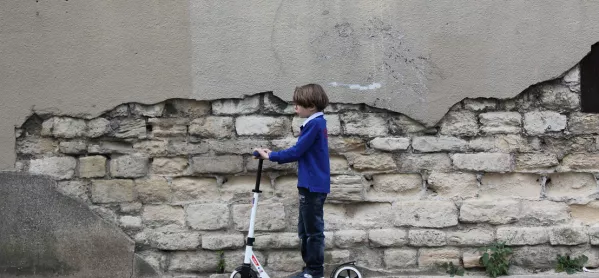‘Tis the season of party conferences. This year I have been speaking at fringe meetings alongside the Child Poverty Action Group. We were asking the question: in what ways does child poverty affect educational achievement?
It’s an important question. Much has been made, by politicians, over the past two decades, of the imperative that poverty is no excuse. Teachers and school leaders, they tell us, must not betray children by the poverty of their low expectations.
It is very good news that over the last ten years there has been a 14 per cent reduction in the disadvantage gap between poor children and their more advantaged peers. This is progress; it has been hard fought for by educational professionals, and it is worthy of note.
But change is slow. Persistently disadvantaged pupils end primary school a year behind their more advantaged peers. By the time they take GCSEs the gap has widened, to 19 months. So it appears that disadvantage grows alongside age.
Even more worrying is the fact that lower educational outcomes of persistently disadvantaged children start at birth and grow exponentially in their first few years. Forty per cent of the gap in educational attainment has been created before children even start school.
This uncomfortable truth sits awkwardly with those who preach to teachers about the poverty of low educational expectations. They find the facts inconvenient and want to ignore them. The negative effects of poverty, they proclaim, can be magicked away by high teacher expectations and a rigorous, knowledge-based curriculum.
I take these claims with a pinch of salt. I view those who make them as apologists for the growing number of children living in persistent disadvantage, with working parents whose pay is too low, and work too insecure, to make ends meet. The scale of child poverty is now so great that in every class of 30 children, nine will be poor.
In August this year, the NEU conducted a poll of secondary school teachers which, among other things, asked them about child poverty. More than half of the 650 respondents confirmed that children in their school experienced holiday hunger and that the situation was getting worse. They reported that their schools were being left on their own, as local authority funding is slashed, to feed children, to wash their school uniforms. They reported that they were seeing a huge rise in safeguarding issues - so much so that the bar for intervention by social services in some parts of the country was now so high that only the most severe cases of abuse and neglect were being dealt with.
I do not believe that a child whose basic needs - food, warmth and a secure place to live - are not fulfilled can readily focus on their learning. Research tells us that parents who are stressed and insecure because they don’t have enough money to fulfil their children’s basic needs are less able to support their children’s oral and literacy development. These things should be obvious. The fact that they are contested speaks to the toxification of the education debate in this country.
The apologists for child poverty always have the last card to play. They point to the exceptions - the poor children who make it. There, they say, you can escape the poverty of your childhood if you are hard working/ambitious/able enough.
And when they say this I ask them: why do we expect all poor children to be extraordinary enough to escape the effects of the persistent disadvantage that they suffer throughout their childhood? In a civilised society should it not be deemed unacceptable that some children, poor children, are required to overcome huge hurdles to achieve their potential? And should it not be a source of shame that so many poor children, who could have achieved so much, see their life’s potential diminished by forces over which they have no control and for which they have no responsibility?
Mary Bousted is joint general secretary of the NEU teaching union. She tweets @MaryBoustedNEU





